Producer Dave Bascombe on Depeche Mode’s ‘Music For The Masses’
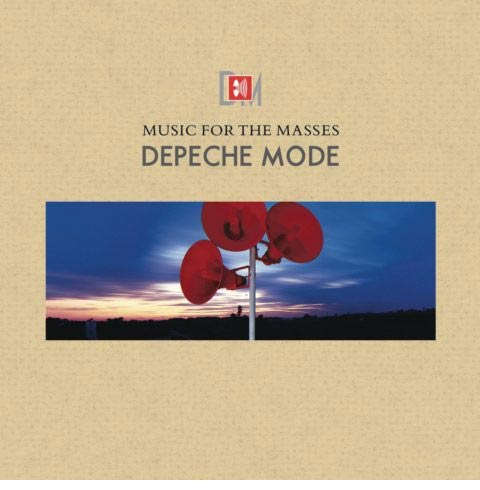
Dave Bascombe talks to SDE about the recording of the album
As engineer, mixer, co-producer or producer, Dave Bascombe has his name on the credits of many fine albums, including those by artists such as Tears For Fears, It’s Immaterial, Danny Wilson, Oleta Adams and Erasure.
In 1987, he worked on Depeche Mode‘s sixth album Music For The Masses as engineer and co-producer. With the recently issued 12″ Singles vinyl box sets of Music For The Masses and Black Celebration, SDE got in touch with Dave to ask him about the recording of the album…
SuperDeluxeEdition: How did you get involved with this record in the first place?
Dave Bascombe: I am not exactly sure… but I was obviously approached via management and I think it was David Gahan who liked what he heard, with the Tears for Fears stuff, particularly ‘Shout’, I think, so he was the one that probably suggested me. I went and had a meeting with them and we got on pretty well so that was it really. It’s pretty straight forward.
SDE: Daniel Miller had been working with them up until this point and I think there was a feeling after the previous record that they’d all sort of had enough of each other, just wanted to do something else…
DB: I think so, yeah. Daniel loves being in the studio, but he had a business to run and he probably had enough of the endless process. I think he felt it was time for a change but obviously that was before my time so I’m only speculating. Everyone needs a change.
SDE: Because they were quite a big band and certainly they were having lots of pop singles at that time, you must have been well aware of what they were up to.
DB: Yeah, I loved them, I was very chuffed to get the call. I was actually signed up to do another album in Australia, which was the only time I’ve ever had to cancel, because obviously this was something which was much better for me. I was a big fan. I’d kind of gone off them a little bit in their sort of industrial phase… banging bits of metal and stuff left me a little bit cold. So, I was quite glad we started moving away from that a little bit on Music for the Masses.
SDE: Before you take a job do you kind of sit down and have a chat, and get a feel for whether they want to go in any specific direction or…
DB: I wasn’t the sole producer, so it wasn’t like we had to have a huge talk about that. It was a co-production with Alan [Wilder], mainly, so they had very much their set ways of working and I didn’t steam in there and try and change all that particularly. So, no, we just had a chat about people who we liked and I think Fletch [Andy Fletcher] asked me a couple of technical things and that was it really. I think it was just to see if we got on, mainly.
SDE: Where did this come in the timeline for you in terms of things that you’d worked on, because obviously there was Tears for Fears, It’s Immaterial, stuff like that. What had you done just before you did this one?
DB: I honestly can’t remember what I was doing just before it. It’s too far back to remember [laughs]. I was doing bits of production and bits of mixing.
SDE: And because they weren’t a traditional ‘band’, was there some similarity with Tears for Fears?
DB: Oh certainly, yeah… I mean that was the period as well where we were all really into the same sort of….not anti-rock but… the whole of the early ’80s for me was a fantastically exciting time with the technology and I really embraced all of it. So, yeah, we definitely were on the same page as that and searching for different ways of doing things, different sounds.
I mean, they were obviously a lot more experimental than – not obviously – but they certainly were more experimental than Tears for Fears or anything else I’d done, really. And there were some funny unwritten rules which took a bit of getting used to – when I hear ‘rules’ I think “oh come on!”.
So, one was ‘no high hats’ – some of these rules went out the window later on – ‘no presets’, ‘no chords’, although we broke that a couple of times… and I think, actually, a lot of those things were shared with Vince Clarke – obviously, I worked with Erasure later on – so that probably came from early Depeche days and of course a lot of it’s in the Kraftwerk way of doing things.
SDE: So, when you say ‘no chords’, what you mean is that they didn’t want synth pad-type chords?
DB: Exactly, yeah. So, if we did do a chord it would be layered out of various monophonic parts. So, that was all interesting and sometimes you might think you’re giving yourself a hard time for the sake of it, it did certainly give them a unique sound and a unique approach.
And one of the first things we did when we got to Paris was go around just making loads of samples. I’d never done that before. I thought you usually made samples as and when required but no we went round, the first few days just going round and bashing snare drums or bits of percussion and whatever we could find and sampling them for later use, so that was quite interesting.
SDE: And would you do those samples on a portable DAT recorder or something like that?
DB: No, no, it was all just long cables. We were in a great studio [Studio Guillaume Tell]
SDE: So you weren’t going outside for the samples, then?
DB: We didn’t do anything outside on that, no, I think all that kind of going to junk yards and bashing things was… they’d done all that. We dug out a few of their old samples and I brought a lot of mine as well, which were more in the vein of just regular snare drums and kicks, although I did use, there’s one interesting sound which is used as a high hat on, I think ‘Nothing’, or maybe a few things, which is a pneumatic coach door shutting. Anyway, we did swap a few things around like that. I had an Emulator II [sampler/keyboard], we’d swap discs and so on.
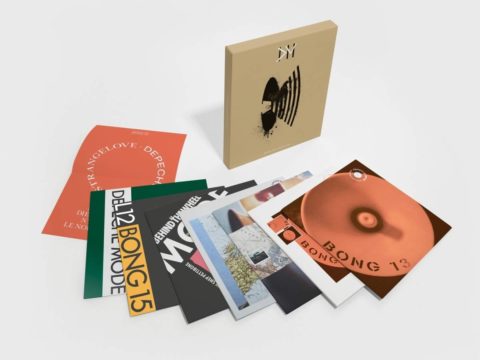
Music For The Masses has recently been reissued as a 12-inch vinyl box
SDE: Who chose the Paris studio; was that the band?
DB: That was before my time. I think probably the band – they loved going away. They’d done Berlin [Hansa], I think they’d done at least two albums there so…
SDE: I was going to say that, because Hansa in Berlin sounded like a really cool place to record, did you ever work there?
DB: No, I never did and I really wished, in a way, we’d done Music For The Masses there. I’ve had lots of lovely experiences, [but] I never actually went to Hansa. However, we had a fantastic time in Paris, I mean we had a great time and worked bloody hard but went out clubbing every night. We were the same age, and it was fun. It was hard work but fun. So, yeah, we got on very well and it was a really enjoyable album to do.
SDE: What was the studio routine? Would it be a late morning early afternoon start?
DB: I can’t remember the hours we were doing but I think it was probably midday to midnight, maybe a bit more. And I think it was summer [actually, likely to be around spring ’87) and the studio was all black and it got me down after a while. It was like going into work out of the sunshine got really oppressive because it was pretty intense. I mean we were doing seven days a week, long hours. But at least we did go out, it wasn’t all work; we did actually have a bit of fun at the end of the day.
SDE: I noticed on the credits you produced and engineered the record. I mean that sounds like a reasonable amount to take on. Why did you do that?
DB: Well, I was co-producer. That was common, you know, I think it still is. The engineer will be a co-producer as well. If I had taken on the whole production role I might used another engineer. It was the crossover between production and engineering that they wanted.
SDE: When you started the album, how finished were the songs? Were there demos etc.
DB: That was an interesting process which I found was a bit strange – and I presume this is historical and they’ve probably done it when they were working with Daniel – but Martin would have demos, which were fairly basic – obviously no-one had the facilities to do much more at the time – and then Alan would take them and basically work on them at home, his and rearrange them, and I’d go over occasionally and chuck a few suggestions in, but I found that quite odd.
I’m pretty sure that they changed that afterwards and I think with Violator they went straight from Martin’s demos into the studio. Martin was never very involved in the production, I was thinking about this the other day, and I never knew exactly why. I think he probably found the process pretty intense and boring, and it certainly was boring a lot of the time, but I think he felt that it had been taken away from him a little bit, because that was the way it was done; the demos were this very rough outline and then they would be polished up… and Alan had a vision on that. But I thought sometimes that they were in danger of losing some of the essence of what Martin was doing and I think maybe that’s why he kept a bit out of it, you know.
Often, if Martin wasn’t happy it would usually be Fletch who would speak up for him, he’d had a word with Fletch because he didn’t want a confrontation – not that there was any confrontation, but there were obviously a few things…
SDE: That’s really interesting though, because you would think that the originator of the song would have an iron-like grip on how it was going to sound… at least that would be the usual situation.
DB: Absolutely. Sometimes I felt he wasn’t completely happy with how things were turning out but that was just the way it was. Obviously when it was Daniel [Miller] and Gareth [Jones] and Alan [Wilder] all working together he must have found it quite hard, I’m imagining the situation, I don’t know, but I imagine he would be battling against those three, and if they saw it a different way it would be quite tough. He was used to being in that role.
I’m sure later on, well I’m absolutely positive now, that he’s very much part of it. I think it’s healthier really but anyway that’s just the way it was and Alan had a great vision for it all as well. Someone needed to steer the thing so that’s the way it went.
SDE: Obviously Music For The Masses opens with ‘Never Let Me Down Again’ which is this quite a monumental sounding track.
DB: That’s the one that hit me when I first heard that demo, I thought that’s just fantastic. My sole contribution, well not my sole contribution – this is before we got to Paris, we were round at Alan’s house – and I said ‘right, I want to use ‘When The Levee Breaks’ [Led Zeppelin] drums on this.’ I know that it’s been used 10 billion times now, but they were still quite new then and I’d always loved those drum sounds and as I say they weren’t a cliched thing then, so I suggested using them for the main kick and snare. But I actually loved that track, still do.
SDE: And the funny thing about that song was that it wasn’t a massive hit in the pop charts, but it became kind of an anthemic number, in the live environment, in particular.
DB: Yeah, yeah. It’s a shame it wasn’t a bit of a hit but, yeah, there wasn’t any particularly big hits off that album
SDE: I know they ended up having a few hits again with Violator but they almost deliberately moved away from having to have bit catchy pop singles, almost like they’d lost interest in doing that….
DB: Well, I don’t think you actually lose interest in it [laughs] I think it’s just the way it goes. I don’t think anybody doesn’t want a hit but… well I think it’s fair to say that album was a bit of a transitional album.
SDE: The foundation for the success of Violator, in a way.
DB: Absolutely. I still love it in its own right, but I do think it, it does feel like a bit of a… [transitional album] when you know what’s coming next.
I mean the interesting thing… these demos, getting back to Martin’s demos again, Martin was very into glam rock amongst many other things, electronica and so on and his demos had a bit of that in them, that we lost a bit. I remember ‘Sacred’ had that sort of stomping Gary Glitter brass thing, and later on that became more realised… if you listen to ‘Personal Jesus’, it’s like a glam song. That was obviously because I think the demo vision got carried through a bit better.
SDE: Was there much guitar used in the studio. The Violator album became known as the one where ‘they’re bringing guitars into the mix’ but was there much guitars used on this album?
DB: I think this was pretty much their first time that they’d ever used guitar. So, certainly I remember Martin had his guitar, and it’s used quite a bit… the beginning of ‘Never Let Me Down’ for example…. what a wonderful, happy accident that was. It was supposed to start with the snare drum and then go straight in, but because of the nature of technology at the time, the guitar rift was played, then we sampled it into the Synclavier [early digital synthesizer/digital sampling system] and it just kicked off as soon as it got code at the beginning of the track and we all went ‘wow, that’s great’, so that was an accident.
So, that’s a guitar thing. And there’s bits and pieces of guitar, such as on [B-side] Pleasure Little Treasure. I mean it wasn’t such an up front thing, more instrumental, you know, and usually quite heavily treated.
SDE: Strangelove was a big-ish single. I mean, I think that actually was a bigger hit than Never Let Me Down Again but that did really well for them in America as well. You must have been pleased with how that turned out?
DB: Yeah, people often comment about the album version being different [to the single] and it’s shame really I think, because the original version was really good I thought, I really liked it. It’s just Daniel [Miller] had done a remix that we really liked and, so we got a kind of hybrid and that went on the album.
SDE: Say that again about the versions… so the single version was different to the album version, but which one do you think is the best one, the album version?
DB: At the time I preferred the album version, now I think I prefer the single version. They’ve both got merits.
SDE: The single version was the Daniel Miller remix, was it?
DB: No, no, the single was our original version. I think we’d obviously finished it much earlier than the rest of the album, to get it out, and maybe it’s just been knocking around for a while and they got a bit fed up with it and you know, you want to change things.
So, Daniel had done a 12-inch remix which has this kind of ‘half-time’ feel and so we made it that. That was actually one song where I know Martin, quite early on, was unhappy with the way it was going and we ended up… I think on his original demo, it had a fast bass line and then Alan had made it half time and I remember Martin not being happy with that.
And again, my contribution as a co-producer was just to say “well, why don’t you have both?” [laughs] and if you listen to the single version there are two bass lines going on there. Martin’s [original] was much faster and more urgent and then for the album version it became even more slow and lazy.
SDE: That’s really interesting. Let’s talk about some of the other tracks. ‘Sacred’ and ‘Little 15’ have almost like a soundtrack sort of John Barry-esque feel. There’s a fair amount of ‘space’ in those, isn’t there?
DB: I think that was Alan’s influence and in terms of the space, I mean I was into a lot of reverbs and things… there’s a lot of reverb on that album which is ‘of the time’, but I suppose the cinematic thing was Alan. And the orchestral stuff, like in ‘Little 15’, there’s a lot of orchestral samples in there that we spent ages working on and that was definitely Alan, [he’s] definitely the reason for that.
SDE: I’ve always loved the B-side ‘Agent Orange’, the instrumental…
DB: That’s fantastic isn’t it? I love that.
SDE: Yeah… that’s very cinematic isn’t it?
DB: Yeah. Well that particularly had loads of space in it and I was thinking about that the other day. I was going through some tracks, it’s one of those that was so good [you think] that it should go on the album but it is merely a B-side. That’s what makes B-sides great, they can be that empty and sparse.
SDE: What about ‘Behind the Wheel’? That was the third single, of course.
DB: Yeah, it’s funny. I never really got ‘Behind the Wheel’. I know it’s a lot of people’s… well not favourite, but certainly it is iconic, but I never quite understood it to be honest. I just didn’t get it really. I like it but it’s not one of my favourites.
SDE: And ‘I Want You Now’. It’s got the heavy breathing and all that stuff.
DB: Yeah, it’s great that one. Well, the breathing, the two samples, originally were sampled from a porn film. They were really lo-fi. Then it was Fashion Week when we were in Paris which terrible, you know [laughs] so models turned up at the studio and we got them to do the samples, just to get it a bit more hi-fi!
SDE: How long were you in the studio for, because I know you went from Paris and then came back to London for a bit didn’t you?
DB: Yeah, and then went to Denmark. I think it’s probably about six months but because it was on and off I really can’t remember. I think there were a fair few gaps. We went from Paris and then we went to Konk [studios in North London], to do vocals, I think… and bits and pieces. And then we went to Puk [studios in Denmark].
SDE: I don’t know if you ever sit back and rank your work but how pleased with the final results were you? Where do you think ‘Music For The Masses’ sits, in terms of other stuff you’ve worked on?
DB: Well, I get a lot of attention worldwide because they’ve got such a fantastic fan base. It gets quoted at me a lot. I’d say it’s patchy. For me, there’s a few tracks, ‘Never Let Me Down’ certainly… ‘I Want You Now’, there’s a few really nice things on there but I don’t listen to the album particularly as a whole. I’ve only just listened today just because I knew you were calling. I’m pleasantly surprised when I hear it. I always find with the stuff from those days [it’s a case of] is how the hell did I do that? I can’t remember what those reverbs were, or anything, you know… I was a different person back then, really.
I’d say half of it I’m really really pleased with, I reckon. I mean, ‘Sacred’ is a track that I always feel I didn’t quite get right and probably 10 years ago now there was a 5.1 surround remix done.
SDE: I’ve got that one, on the Super Audio CD
DB: And obviously we did stereo remixes as well…
SDE: So, were you involved in those sessions?
DB: Yeah, they had, I think it was Kevin Paul, he was the house engineer, He was really good, but I did it with him. So, we finally managed to get Sacred right.
SDE: So, on the stereo remix on this special edition you actually sneaked on a slightly different version of ‘Sacred’?
DB: Well, yeah… it’s not, I mean it’s just a better balance, you know. Kevin was mixing it anyway so it’s going to sound different even though our aim was to recreate the original one but it’s impossible, and if it can sound better and still have the same emotional journey then that’s what you do. ‘Pimpf’ was another real favourite of mine.
SDE: That’s great
DB: I’m so pleased with that. I know that, that was the B-side to ‘Strangelove’ and then we were at Puk and they had gone off to do a video probably, they were away and I didn’t have anything to do so, I just remixed it for my own sake because I thought that I could get it better and it was a much better mix, and they all came back and agreed.
It wasn’t planned to go on the album originally. I think maybe because I’d done a better mix or whatever, and it’s such a strong track on the album [that they changed their mind]. But I do remember the tour and I saw them in Paris in some stadium and it is an incredible thing to open with. It was pretty scary actually, it was like a rally! You can imagine all sorts of dark things, you could use that for all sorts of various purposes but it was really powerful. That’s a great track. I do love the kind of… more experimental stuff. That’s Martin really, in his element, doing the vocals on that.
SDE: They did seem to balance being experimental but it never pulling it too far away from the mainstream where people could still enjoy it.
DB: Absolutely… well that’s, because, as I say, Martin has very broad tastes. He grew up listening to Gary Glitter, T Rex and Bowie obviously and then he was also into Kraftwerk so he’s got that kind of pop sensibility which gets filtered through electronica and Martin’s more weird tastes, and then Alan’s got his angle; everyone’s got their angles.
But they’ve got a good ear for pop but not and it gets filtered through ‘the rules’ which are there to make sure it sounds distinctive.
SDE: These ‘rules’, they weren’t written up on a blackboard anywhere it was just everyone knew them?
DB: No, no, no [laughs]. I mean, they don’t take themselves seriously at all, so it was all a bit tongue-in-cheek. That’s what was so much fun, because they were very easy to work with at the same time.
SDE: And the remixes, the reason we’re talking about this is because they’ve got a 12-inch box set coming out. Did you get involved much?
DB: Yeah, we did do them. I know for ‘Never Let Me Down’ I did a couple.
SDE: There was an ‘Aggro Mix’
DB: Aggro mix, yeah, I play that occasionally. I’m quite proud of that. That’s apparently quite iconic and there’s another one as well [Split Mix] so generally I do a couple of jobs but they weren’t total re-workings, like it was keeping the same basic elements and just doing mutes and the occasional things. I know Alan added some stuff on the Aggro Mix, I think.
Sorry, but another one that pops into my head when I think of the album is ‘Nothing’ which no-one else seems to mention at all but I love that track. It’s one of the better sounding ones which is maybe why I like it, but it’s got this classic Martin lyric and it’s a good tune.
SDE: He is a brilliant lyricist, I really like his lyrics.
DB: Absolutely. I mean, an absolutely genius.
SDE: You were saying, maybe it’s a little bit patchy but I don’t really think there’s any weak song on the record.
DB: No. There is no filler in there at all. I didn’t really mean that, I was just in terms of…
SDE: Do you mean the production or the way the things ended up sounding?
DB: I don’t know, I just think there’s just certain songs that I prefer and those are the ones I play. I mean ‘Little 15’ for example – it’s a great song – what am I talking about?! – but I wouldn’t play that. It’s not something I would think about putting on that often.
SDE: But the thing is, in the flow of a record it works quite nicely I think, you know, rather than picking out individual songs.
DB: Absolutely…
SDE: What I loved about this album when I first heard was the light and shade I suppose. ‘Never Let Me Down’, ‘Little 15’ etc.
DB: I mean there are great songs and there is enough there to keep it working as a whole thing, in the good old days of listening to an album… it’s totally worked on that level.
SDE: I still do that Dave – don’t you!? [laughs]
DB: No. I’ve got to be honest… well very occasionally I will, but usually some old favourite, you know, from way back. I mean, very rarely listen to a whole album.
SDE: What have you got at home rigged up, have you got a streaming set-up?
DB: Yeah, it’s streaming. I’ve got a home studio now so I listen to stuff mostly in there, but otherwise it’s just in the car or on my phone. I don’t even need the earphones. I just listen to it on my phone speaker.
SDE: I hope you don’t sit on the bus with your phone annoying other people? [laughs]
DB: [laughs]. Buses? I remember buses, yeah.
SDE: Was there ever any discussions about you maybe doing the next record?
DB: Yeah, Fletch said they wanted me to do it, but I was off to do Tears for Fears [The Seeds of Love album] so basically, I had two years out of my life, whether I would have actually got to do it… I know certainly Fletch asked me to do it and the 101 Tour, I was supposed to be doing too, but I was otherwise engaged.
Thanks to Dave Bascombe who was talking to Paul Sinclair for SDE.
The 12-inch singles box sets for both Music For The Masses and Black Celebration are out now. The SDE shop has some well-priced stock of the excellent SACD+DVD deluxe of Music For The Masses which includes the 5.1 surround mix and new stereo mix that Dave worked on back in 2006. It’s a great package that includes a documentary and some bonus tracks in 5.1 too.
Compare prices and pre-order

Depeche Mode
Music For The Masses - The 12-inch singles
Compare prices and pre-order

Depeche Mode
Black Celebration - The 12-inch singles
![]()
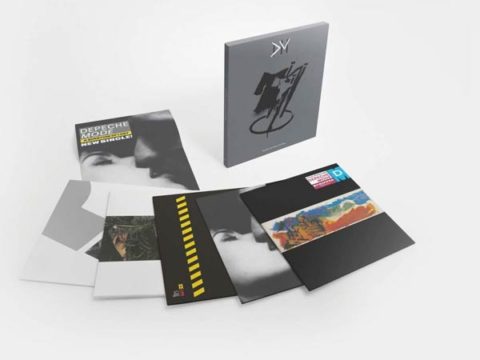
Black Celebration: The 12″ Singles
Stripped
A1 Stripped (Highland Mix)
A2 But Not Tonight (Extended Remix)
B1 Breathing In Fumes
B2 Fly On The Windscreen (Quiet Mix)
B3 Black Day
A Question of Lust #1
A1 A Question Of Lust
A2 Christmas Island (Extended)
B1 People Are People (Live)
B2 It Doesn’t Matter Two (Instrumental)
B3 A Question Of Lust (Minimal)
A Question of Lust #2
A1 A Question Of Lust
A2 Christmas Island
B1 If You Want (Live)
B2 Shame (Live)
B3 Blasphemous Rumours (Live)
A Question of Time # 1
A Question Of Time (Extended Remix)
B1 Black Celebration (Live)
B2 Something To Do (Live)Mixed By – Gareth Jones
B3 Stripped (Live)Mixed By – Gareth Jones
A Question of Time #2
A Question Of Time (New Town Mix) 6:50
A2A Question Of Time (Live Remix) 4:21
B1 Black Celebration (Black Tulip Mix) 6:36
B2 More Than A Party (Live Remix)Remix 5:12
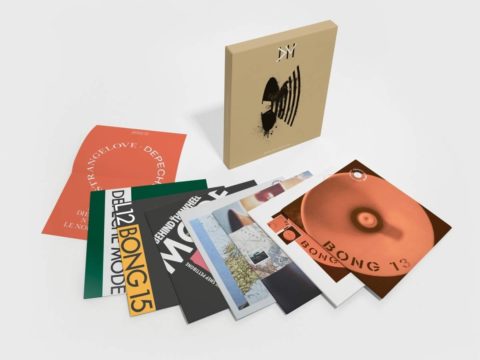
Music For The Masses: The 12″ Singles
Strangelove #1
A Strangelove (Maxi-Mix)
B1 Strangelove (Midi-Mix)
B2 Fpmip
Strangelove #2
A1 Strangelove (Blind Mix)
A2 Pimpf
B1 Strangelove (Pain Mix)
B2 Agent Orange
Never Let Me Down Again #1
A Never Let Me Down Again (Split Mix)
B1 Pleasure, Little Treasure (Glitter Mix)
B2 Never Let Me Down Again (Aggro Mix)
Never Let Me Down Again #2
A Never Let Me Down Again (Tsangarides Mix)
B1 Pleasure, Little Treasure (Join Mix)
B2To Have And To Hold (Spanish Taster)
Behind The Wheel #1
A Behind The Wheel (Remixed By Shep Pettibone)
B Route 66 (Remixed By The Beatmasters)
Behind The Wheel #2
A Behind The Wheel (Beatmasters Mix)
B Route 66 (Casualty Mix)
Little 15
A Little 15
B1 Stjarna
B2 Sonata Nº 14 In C#M “Moonlight Sonata”

 Interview
Interview

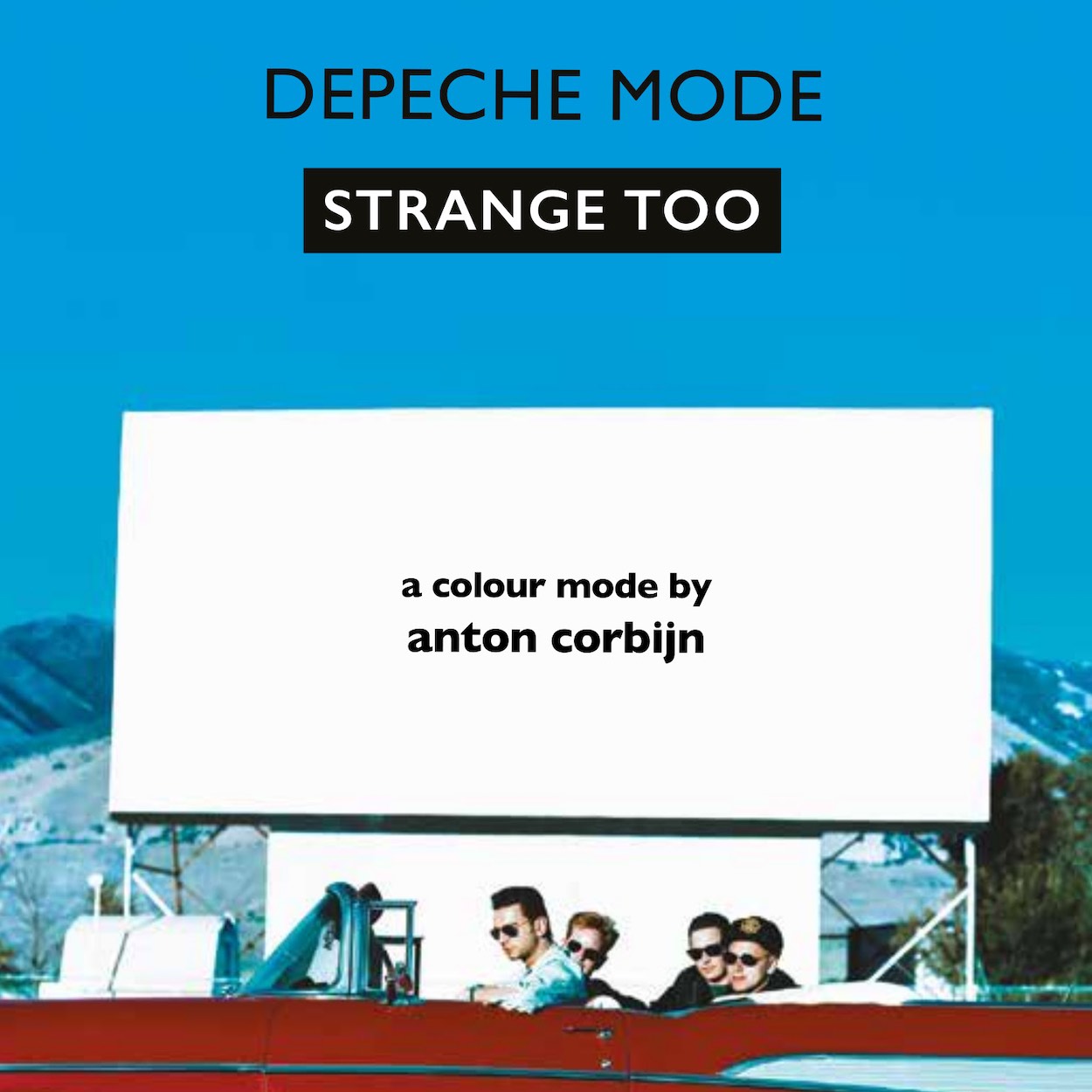
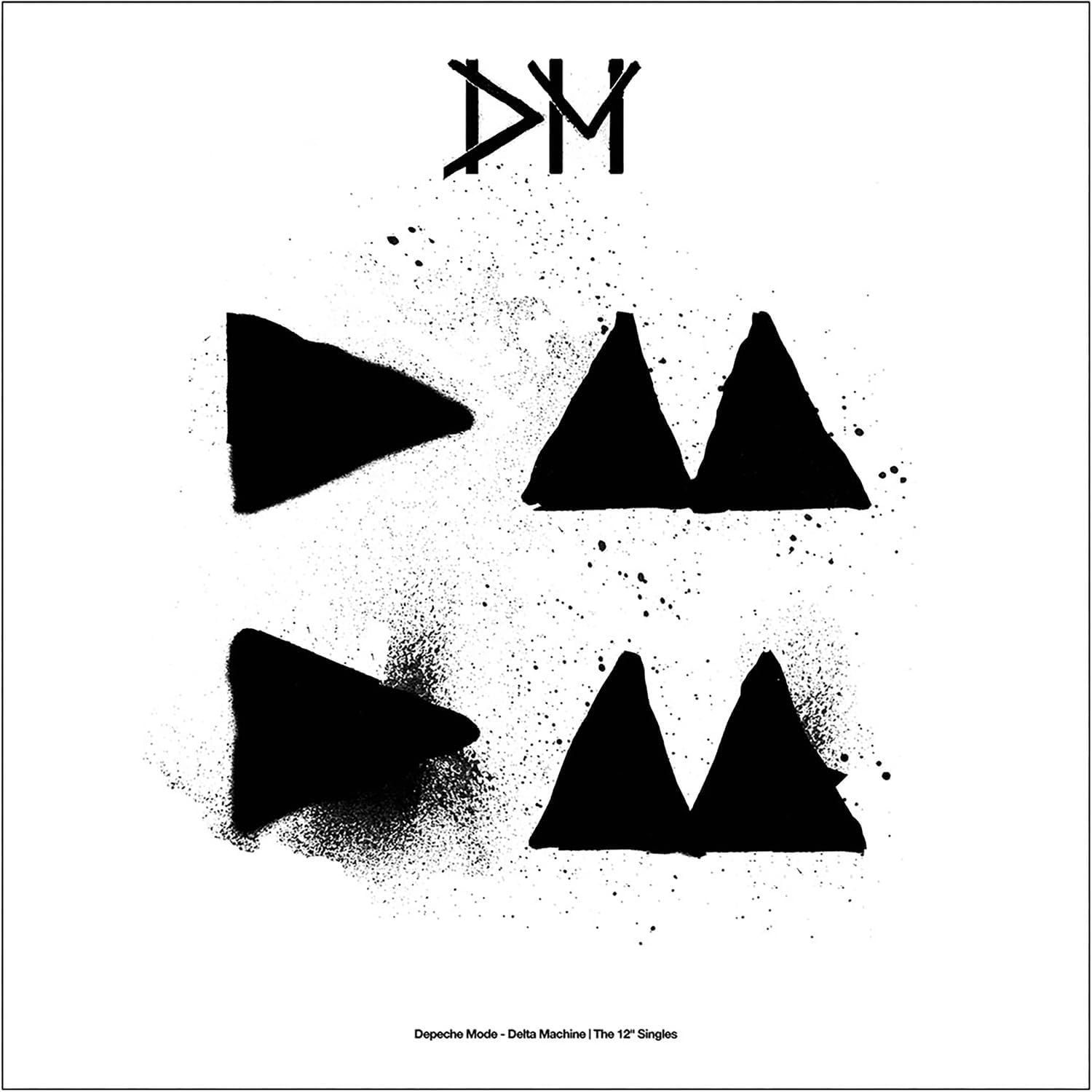

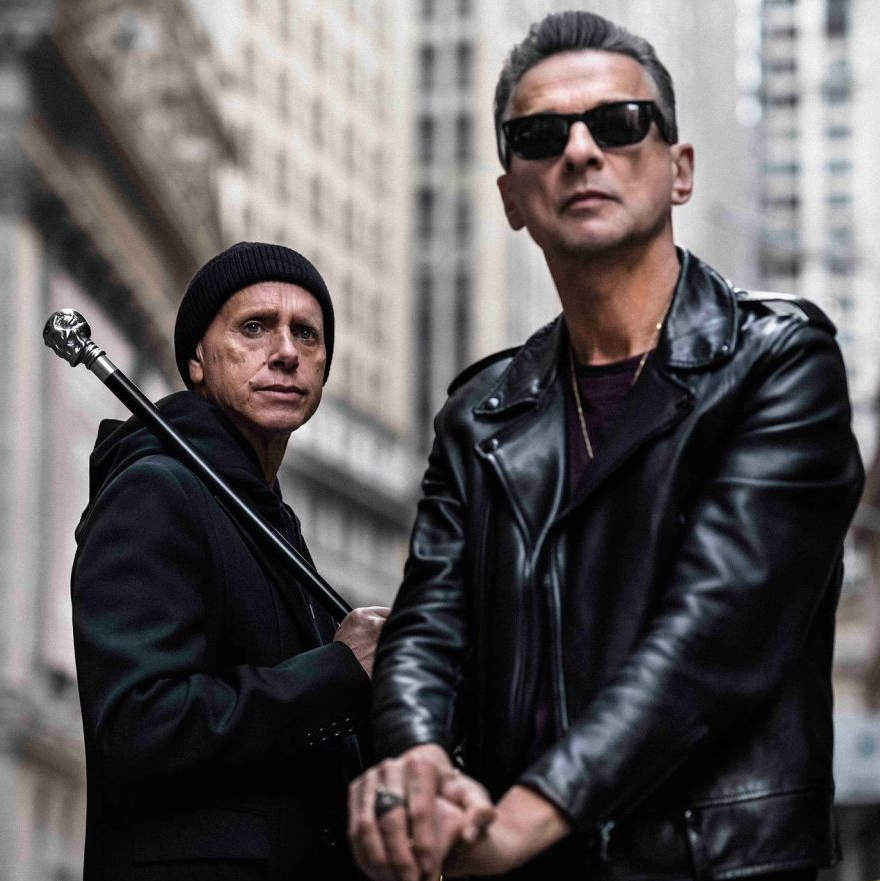
By Paul Sinclair
61